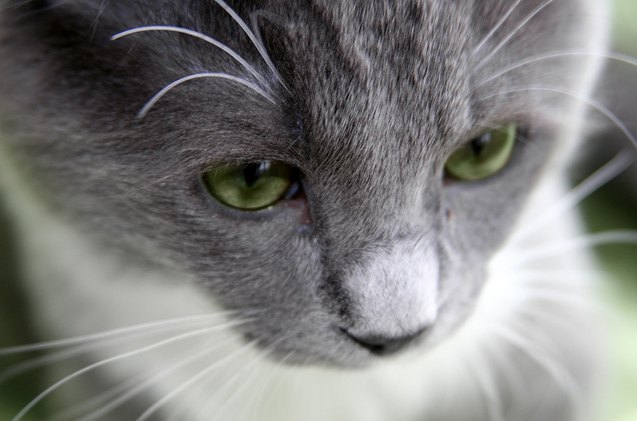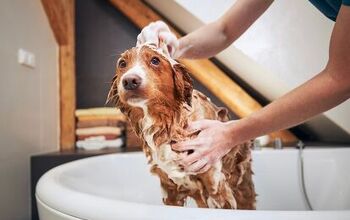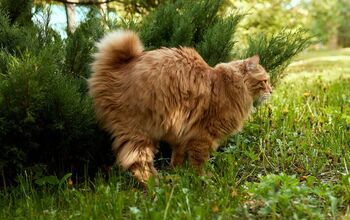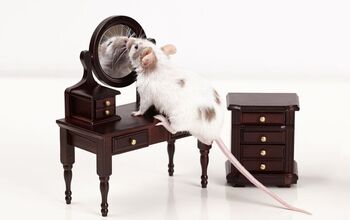What You Should Know About Feline Lower Urinary Tract Disease

Feline Lower Urinary Tract Disease, also known to as FLUTD, refers to disorders of the urethra and bladder. Problems include difficulty urinating, painful urination, blood in the urine, urinating outside of the litter box, a partial or total blockage of the cat’s urethra, and frequent or abnormal urination.
Thankfully, FLUTD is treatable, but it is important to get your cat to the vet as soon as you notice symptoms so that the condition doesn’t progress or become life-threatening.
Related: Why is My Cat Peeing Outside the Litter Box?
Symptoms to Watch For
Knowing how to identify symptoms of FLUTD is your first step in being able to get your cat the care he needs right away. If you notice that your kitty starts exhibiting the following signs, make an appointment with your vet:
- Cloudy or bloody urine
- Unable to urinate or only able to pass a small amount of urine
- Frequent urination or trips to the litter box
- Crying out in pain or straining to urinate
- Spending a longer amount of time in the litter box trying to urinate
- An avoidance or fear of the litter box, resulting in urination outside of the box
- Lethargy, vomiting, or excessive licking of the urinary opening
- Distended, hard abdomen
The Causes of Feline Lower Urinary Tract Disease
Both male and female cats can be affected by FLUTD, but male cats are more susceptible.
Related: The Most Common Litter Box Mistakes You’re Making
Causes include:
- Accumulation of debris, crystals, or stones in the urethra or bladder
- Congenital abnormality
- Urethral plug
- Bladder infection or inflammation
- Stress
- Endocrine disorders like diabetes or hyperthyroidism
- Injury or tumor within the urinary tract
Treatment Options
Again, if your cat is exhibiting any of the symptoms above, it is important to take him to the vet as soon as possible. If there is a urinary blockage, the condition could become life-threatening, leading to kidney failure or rupturing of the bladder. Also, if your cat is obstructed, handle him with care and don’t press on his bladder. Instead, let the vet examine him thoroughly and carefully.
Once your vet has diagnosed your cat with Feline Lower Urinary Tract Disease, he will determine the appropriate treatment. Your vet might recommend using medications, such as antibiotics, and you may need to increase the amount of water your cat drinks, as well as change his diet.
Other treatment options include urinary acidifiers and the expelling of stones through the urethra. If there is a urethral blockage in your male cat, a urinary catheter may be used, or he may need surgery. Surgery may also be recommended if there is a congenital abnormality or if there are large bladder stones or a tumor.
Dietary Changes
Depending upon the diagnosis and the types of stones or crystals that your cat suffers with, your vet may recommend some dietary changes to ensure the problem does not recur.
Certain stones will create an acidic urine, while others will create a more alkaline urine, so your vet will help you modify your cat’s diet, perhaps by using prescription diet formulations, to bring the pH back into balance.
If your cat has to deal with the persistent presence of urinary crystals that can cause blockages, your vet may also recommend feeding more wet foods and eliminating or reducing the feeding of dry foods. This is because moist foods help flush the bladder and urethra by increasing the volume of urine and diluting the concentration of chemical irritants, substances, and toxins that can create stones and inflammation.
Maintaining the health of your kitty’s urinary tract is important, so definitely talk to your vet about what steps you can take to prevent problems before they occur. As an informed pet parent, you’ll be able to recognize the signs of problems right away and give your pet the best care for long-term wellness.

Lisa Selvaggio is a freelance writer and editor, and our resident cats-pert, with certifications in pet nutrition and pet first aid. She enjoys producing content that helps people understand animals better so they can give their pets a safe and happy home.
More by Lisa Selvaggio























